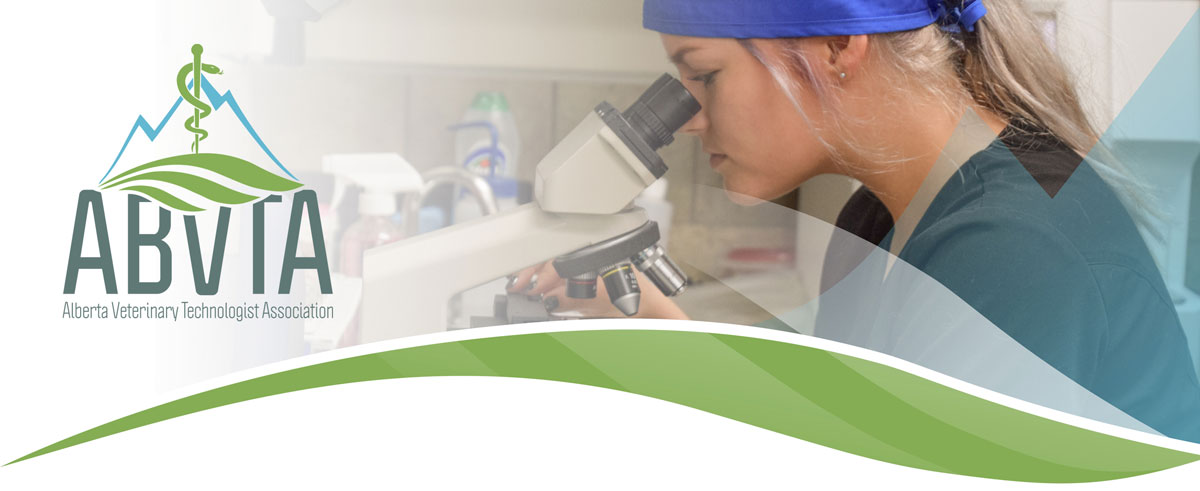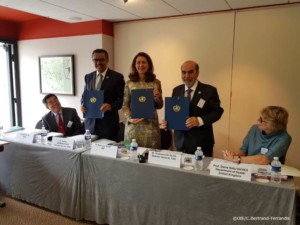Standing from left to right: Dr Tedros Adhanom Ghebreyesus, Director-General of WHO, Dr Monique Eloit, Director General of the OIE and Mr Jose Graziano da Silva, FAO Director General after signature of the MOU.
Paris, 30 May 2018 – The Food and Agriculture Organization of the United Nations (FAO), the World Health Organization (WHO) and the World Organisation for Animal Health (OIE) today agreed to step up joint action to combat health threats associated with interactions between humans, animals and the environment.
In a Memorandum of Understanding signed today, FAO, OIE and WHO agreed to strengthen their long-standing partnership, with a strong focus on tackling antimicrobial resistance (AMR).
AMR is a high priority for the three organizations, who are working together to develop global systems for AMR surveillance and use of antimicrobials, a global antimicrobial stewardship programme, and a monitoring and evaluation framework for the global action plan. A current comprehensive framework of international standards on responsible and prudent use of antimicrobials is regularly adapted to keep up with the development of scientific knowledge.
In addition to AMR, the new agreement will focus on improving disease forecasting capabilities for more informed and swifter responses to emerging and endemic zoonotic diseases (including foodborne diseases); helping countries strengthen their national health systems; and undertaking joint activities related to reduction of threats.
In addition to AMR, the new agreement will focus on improving disease forecasting capabilities for more informed and swifter responses to emerging and endemic zoonotic diseases (including foodborne diseases); helping countries strengthen their national health systems; and undertaking joint activities related to reduction of threats.
“Over 60% of existing and emerging pathogens affecting humans originate in animals; 75% of these from wildlife. So we cannot deal with human health, animal health, and ecosystem health in isolation – we have to look at them together, and address them together. This partnership pools the unique expertise of each organization and brings their combined weight to bear to do just that, via a ‘One Health’ approach,” said FAO Director-General, Jose Graziano da Silva.
“Each sector has its own specificities but the Members Countries of our three organisations face the same challenges. Our collaboration is therefore fundamental to better help them respond, demonstrating that partnerships between international organisations support those at the regional, national and even local levels. This shows that the One Health approach is not just a concept, it’s a daily reality that we build together through the development and the implementation of an ambitious working programme focused on our common priorities,” said OIE Director General, Dr Monique Eloit.
“The threat of antimicrobial resistance affects humans, animals and our ecosystem. That’s why the Tripartite Partnership of WHO, FAO and OIE is so vital,” said Dr Tedros Adhanom Ghebreyesus, Director-General of WHO. “Working together is the only way to avoid the huge human, social, economic and environmental costs of antimicrobial resistance“.
Rising to meet new challenges
Advances in transportation, the rise of international trade, surging populations and agricultural expansion have dramatically altered how diseases emerge and spread, making a “One Health” approach more essential than ever before.
FAO, WHO and OIE have been working together since the 1940s and, in 2010, formally established collaborative work on antimicrobial resistance and tackling diseases such as influenza and rabies. In 2017, their second strategic document was released reaffirming their commitment.
Bringing together knowledge, insights and technical capacities in human and animal health and food and agriculture can generate strong synergies, for more robust, effective and cost-efficient solutions to the complex health problems facing the world today.
Joint activities under the new agreement will include:
- Supporting the Interagency Coordination Group on AMR established by the United Nations General Assembly in 2016, as well as the continuing implementation of the Global Action Plan on AMR
- Engaging with countries to reinforce national and regional human health, animal health and food safety services
- Improving inter-agency collaboration in foresight analysis, risk assessment, preparedness building and joint responses to emerging, remerging and neglected infectious diseases at the animal-human-ecosystems interface
- Addressing food safety challenges requiring a multi-sector approach in the context of reinforcing food security
- Promoting coordinated research and development to achieve a common understanding of the highest priority zoonotic diseases and the research and development needed to prevent, detect, and control them
- Developing a Voluntary Code of Conduct to reinforce implementation of international standards on responsible and prudent use of antimicrobials
Useful links
- OIE press release: Three new steps in the fight against antimicrobial resistance
- OIE Portal on AMR
- OIE Strategy on Antimicrobial Resistance and the Prudent Use of Antimicrobials
Media contacts
OIE
Catherine Bertrand-Ferrandis
Tel: +33 6 16 46 28 90
Email: media@oie.int
FAO
George Kourous
Tel: (+39) 06 570 53168
Email: george.kourous@fao.org
WHO
Sarah Cumberland
Tel: +41 79 206 1403
Email: cumberlands@who.int
Catherine Bertrand-Ferrandis
Tel: +33 6 16 46 28 90
Email: media@oie.int
FAO
George Kourous
Tel: (+39) 06 570 53168
Email: george.kourous@fao.org
WHO
Sarah Cumberland
Tel: +41 79 206 1403
Email: cumberlands@who.int

